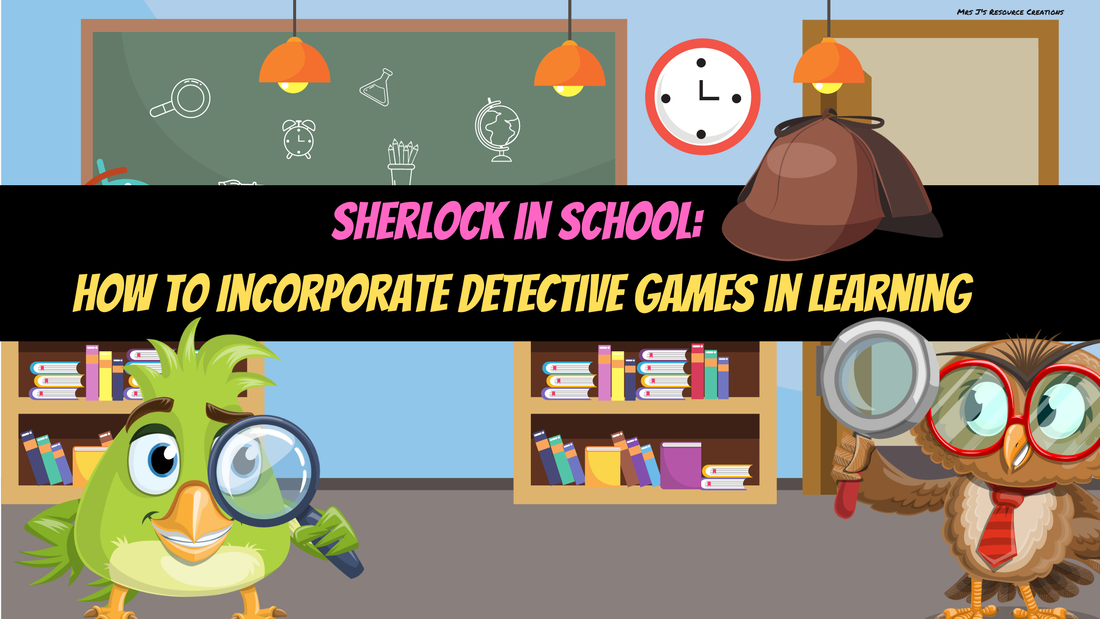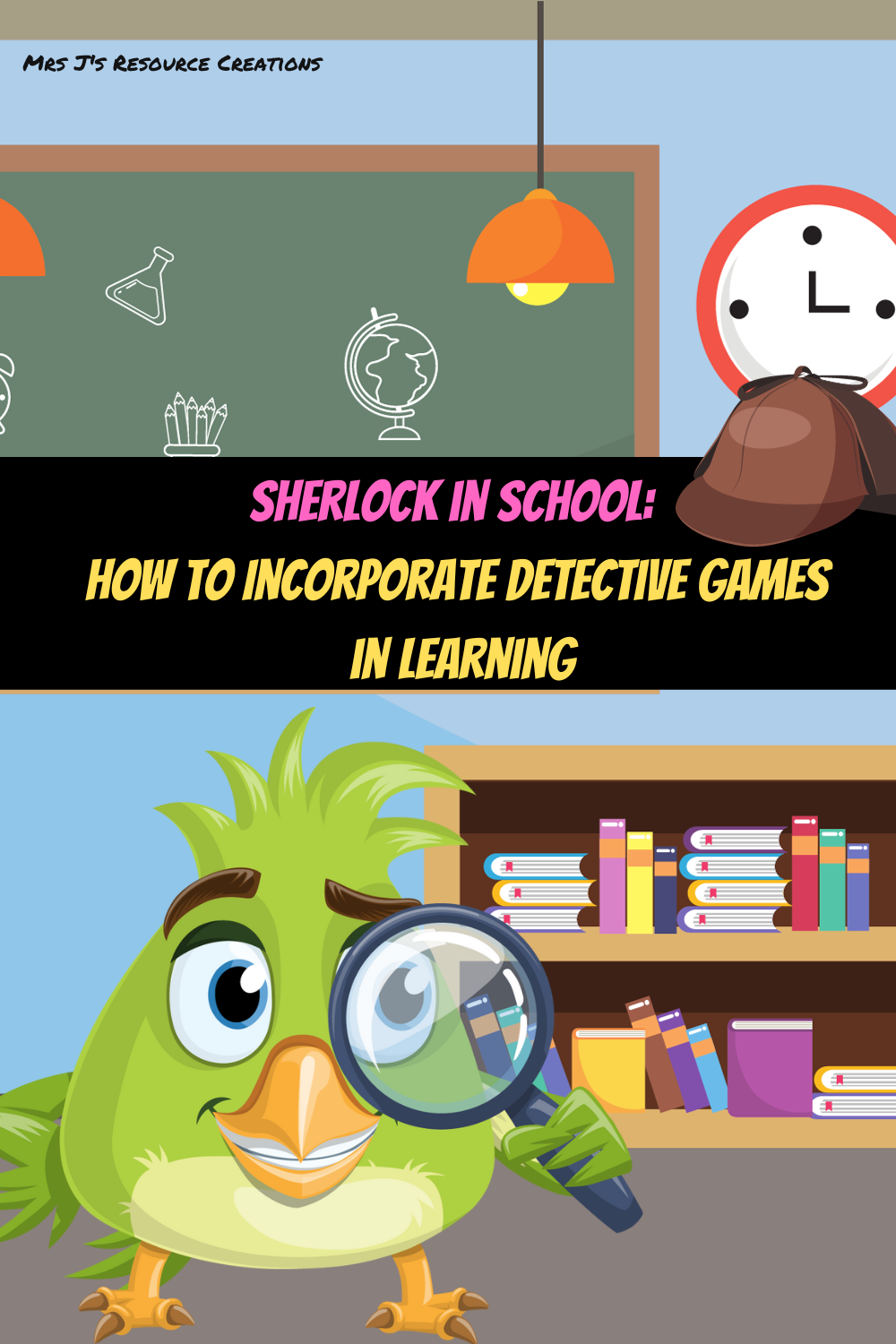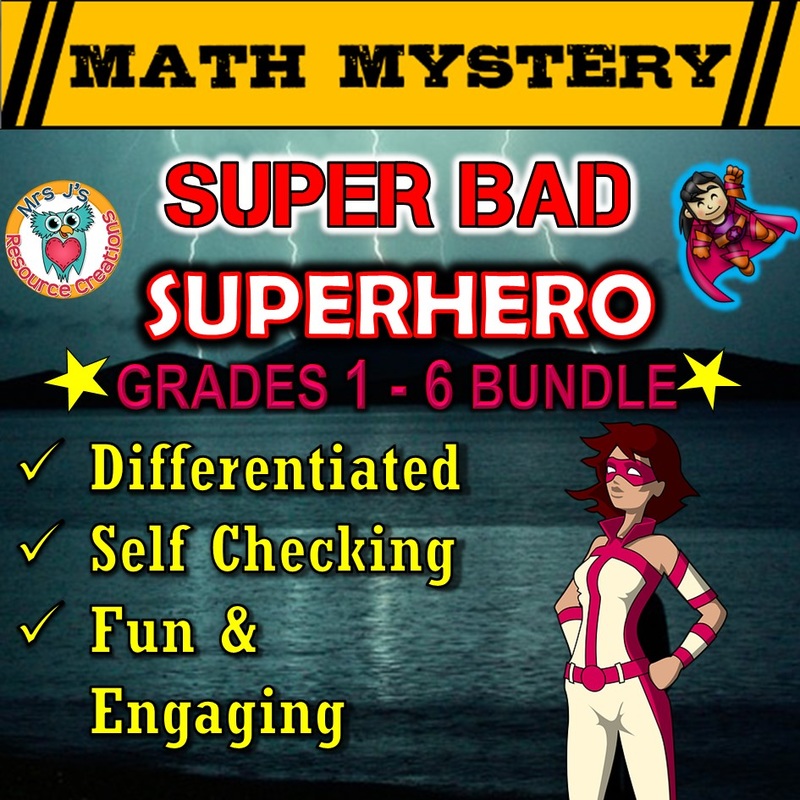- Blog
-
Teacher Resources
- Shop
-
Video Library
-
Math Mystery Video Hooks
>
- Case of the 100 Missing Treats
- Case of The Abducted Alien
- Case of The Alien Apocalypse
- Case of The Angry Adder
- Case of The Bee Bandits
- Case of the Christmas Chaos
- Case of the Construction Crew Conundrum
- Case of the Cursed Classrooms
- Case of The Disappearing Donuts
- Case of The Divided Dragon's Division Review
- Case of the Diwali Delights Dilemma
- Case of The Dream Snatcher
- Case of The Egg Thief
- Case of The Forgetful Pharaoh
- Case of The Furious Falls Winds
- Case of the Giant Goblin
- Case of The Gobbler's Curse
- Case of The Graduation Gremlins
- Case of the Great Zoo Escape
- Case of The Greedy Gnome
- Case of the Halloween Heist
- Case of the Heartbroken Heroes
- Case of the Invisible Illusionist - Integers Math Mystery Activity
- Case of the Jumpy Jack-O-Lanterns Halloween Math Mystery
- Case of The Jungle Joker
- Case of The Kidnapped Groundhog
- Case of The Litterbug
- Case of the Lost Leprechaun
- Case of the Magnificent Growth Mindset
- Case of The Mathattan Meltdown
- Case of Mean Mountain
- Case of The Millennium Bug
- Case of the Mirror Madness
- Case of The Misplaced Pot of Gold
- Case of the Missing Campers
- Case of the Missing Macaw
- Case of The Monster Mix-Up
- Case of the Never-Ending Rain
- Case of the Outback Outlaw
- Case of The Phantom Phoenix
- Case of the Pickpocketing Pirate
- Case of The Poisonous Pizzas
- Case of the Pretzel Puzzle
- Case of The Puzzled Pirate
- Case of the Red Envelope Riddles
- Case of The Robot Robbery
- Case of The Rogue Runner
- Case Of The Rotten Eggs
- Case of The School Invaders
- Case of The Selfish Elf
- Case of The Shogun's Sword
- Case of The Snowman Army
- Case of The Sticky Bank Burglary
- Case of The Super Bad Superhero
- Case of the Thanksgiving Thief
- Case of The Thankless Turkey
- Case of The Time Traveling Troll
- Case of The Tricking Treat
- Case of the Troublesome Trickster
- Case of The Valentine Villain
- Case of the Vanishing Valentines
- Case of The Vengeful Vampire
- Case of The Wacky Wild West
- Case of The Zombie Elves
- Junior Reading Mysteries >
-
Private Eye CSI Literacy Mystery Video Hooks
>
- The Case of the Actor's Accident
- The Case of the Critter Chaos
- The Case of the Devious Duo
- The Case of the Easter Egg Scapade
- The Case of the Grumpy Ghost
- The Case of the Masked Menace
- The Case of the Pilfered Pencils
- The Case of the Reckless Reindeer
- The Case of the Ruined Research
- The Case of the Stolen Surfboard
- The Case of the Turkey Tournament
- The Case of the Wacky Wand
-
Reading Mystery Video Hooks
>
- Burrow Slime
- EGGpocalypse
- Fool's Gold Read Mystery
- Forest Grime - Reading Mystery
- Haunting Hat - Reading Mystery
- Humpty's Fall Reading Mystery
- Knight's Tail
- Poisoned Valentine
- Rescue Rudolph
- Stolen Time
- Teacher Toads - Reading Mystery
- Turkey Trouble!
- Twinkle's Lost Shine
- Which Witch? - Reading Mystery
- Wizard Blizzard
- Math Quest Video Hooks >
-
A-Z Letter Detectives Video Hook
>
- The Case of the Alien's Apples
- The Case of the Banana Bandit
- The Case of the Cat's Cookies
- The Case of the Dragon's Diamonds
- The Case of the Eagle's Eggs
- The Case of the Frog's Flowers
- The Case of the Ghost's Gumballs
- The Case of the Hippo's Hat
- The Case of the Iguana's Ice Cream
- The Case of the Jaguar's Jellybeans
- The Case of the Kangaroo's Kite
- The Case of the Lion's Lollipops
- The Case of the Monster's Map
- The Case of the Ninja's Necklace
- The Case of the Octopus's Oar
- The Case of the Pirate's Pizza
- The Case of the Queen's Quiver
- The Case of the Robot's Rocket
- The Case of the Sloth's Skateboard
- The Case of the Turtle's Toys
- The Case of the Unicorn's Umbrella
- The Case of the Vampire's Violin
- The Case of the Wizard's Wand
- The Case of the X-Hero's X-Ray
- The Case of the Yeti's Yo-Yo
- The Case of the Zebra's Zucchinnis
-
Math Minute Missions
>
- Math Minute Mission Challenge #1
- Math Minute Mission Challenge #2
- Math Minute Mission #3
- Math Minute Mission #4
- Math Minute Mission #5
- Math Minute Mission #6
- Math Minute Mission Challenge #7
- Math Minute Mission #8
- Math Minute Mission #9
- Math Minute Mission #10
- Math Minute Mission #11
- Math Minute Mission #12
- Math Minute Mission #13
- Math Minute Mission #14
- Math Minute Mission #15
- Math Minute Mission #16
- Math Minute Mission #17
- Math Minute Mission #18
- Math Minute Mission #19
- Math Minute Mission #20
- Math Minute Mission #21
- Math Minute Mission #22
- Math Minute Mission #23
- Math Minute Mission #24
- Math Minute Mission #25
- Math Minute Mission #26
- Math Minute Mission #27
- Math Minute Mission #28
- Math Minute Mission #29
- Math Minute Mission #30
- Math Minute Mission #31
- Math Minute Mission #32
- Background Music >
-
Math Mystery Video Hooks
>
- TPT
- About
- Privacy Policy
- Shipping Policy
|
Educators can learn a lot from Sherlock Holmes. He exhibits excellent problem-solving and critical thinking skills, excellent observation and deduction skills, and has a keen eye for details. What better way to promote these educational skills to students than by incorporating detective games into the curriculum? By integrating detective games into their lessons, teachers can enhance student engagement and foster an enjoyable learning atmosphere. In this post, we will explore how to incorporate detective games into the classroom to enhance learning outcomes.
1. Clue-style Mystery Games
What better way to combine thrill and entertainment with critical thinking and collaboration than by constructing a Clue-style mystery game? Teachers can design puzzles, challenges, and riddles that students must solve to uncover the culprit. The game can be modified to relate to the topics that are being discussed in class, such as solving a science problem, math equation, or even analyzing a piece of literature. This approach enhances student engagement, while also giving them a chance to develop valuable problem-solving and critical thinking skills. 2. Crime Scene Investigations Another great way to incorporate detective games into learning is by setting up a mock crime scene. This activity encourages students to work together to identify the suspect by collecting evidence, analyzing clues, and solving puzzles. This approach fosters communication, collaboration, and critical thinking skills. Teachers can design the activity to reflect the subject being studied in the classroom. For example, students in a science class could investigate a faux environmental crime scene or analyze the remnants of a chemical spill. 3. Treasure Hunts Creating a treasure hunt can also be a fun and engaging way to incorporate detective games into the classroom. Students must work together to solve clues and locate the treasure. Teachers can design the treasure hunt to relate to a particular topic, such as history, literature, science, or math. This approach encourages students to develop problem-solving skills, enhance attention to details and master teamwork. 4. CSI: Citizen Science Investigation Citizen science projects offer a great opportunity for classrooms to contribute to real-world problems. Teachers can organise an activity related to environmental conservation that incorporates a citizen science project. Take the example of tracking monarch butterflies' migration. Students can learn about their habitats, migration patterns and set up an experiment to track the monarchs. With real-world applications, this project encourages students to apply scientific principles into the problem-solving approach. 5. Mystery Writing Corner Finally, after exploring the investigated world of Sherlock Holmes, what better way to develop student’s creativity than asking them to share the written version of their concluded mysteries? Teachers can encourage creativity and language proficiency with this approach. Conclusion: Integrating detective games in the classroom is an innovative approach to make learning more enjoyable and enhance students' engagement. Detective games offer an enticing way for students to develop critical thinking, problem-solving skills, analytical skills, and teamwork skills. By using Clue-style mystery games, crime scene investigation, treasure hunts, citizen science investigation, or writing mystery, teachers can engage students and promote learning outcomes. Through these detective games, students develop academic competencies while having fun and remaining intrigued. Check out our library of some ready-made mystery resources to get your students into detective mode and learning:
1 Comment
|
Categories
All
AuthorA 21st century School Teacher, Mother, and Wife. This website uses marketing and tracking technologies. Opting out of this will opt you out of all cookies, except for those needed to run the website. Note that some products may not work as well without tracking cookies. Opt Out of Cookies |
|
TPT Store: Mrs J's Resource Creations
|
Proudly powered by Weebly
- Blog
-
Teacher Resources
- Shop
-
Video Library
-
Math Mystery Video Hooks
>
- Case of the 100 Missing Treats
- Case of The Abducted Alien
- Case of The Alien Apocalypse
- Case of The Angry Adder
- Case of The Bee Bandits
- Case of the Christmas Chaos
- Case of the Construction Crew Conundrum
- Case of the Cursed Classrooms
- Case of The Disappearing Donuts
- Case of The Divided Dragon's Division Review
- Case of the Diwali Delights Dilemma
- Case of The Dream Snatcher
- Case of The Egg Thief
- Case of The Forgetful Pharaoh
- Case of The Furious Falls Winds
- Case of the Giant Goblin
- Case of The Gobbler's Curse
- Case of The Graduation Gremlins
- Case of the Great Zoo Escape
- Case of The Greedy Gnome
- Case of the Halloween Heist
- Case of the Heartbroken Heroes
- Case of the Invisible Illusionist - Integers Math Mystery Activity
- Case of the Jumpy Jack-O-Lanterns Halloween Math Mystery
- Case of The Jungle Joker
- Case of The Kidnapped Groundhog
- Case of The Litterbug
- Case of the Lost Leprechaun
- Case of the Magnificent Growth Mindset
- Case of The Mathattan Meltdown
- Case of Mean Mountain
- Case of The Millennium Bug
- Case of the Mirror Madness
- Case of The Misplaced Pot of Gold
- Case of the Missing Campers
- Case of the Missing Macaw
- Case of The Monster Mix-Up
- Case of the Never-Ending Rain
- Case of the Outback Outlaw
- Case of The Phantom Phoenix
- Case of the Pickpocketing Pirate
- Case of The Poisonous Pizzas
- Case of the Pretzel Puzzle
- Case of The Puzzled Pirate
- Case of the Red Envelope Riddles
- Case of The Robot Robbery
- Case of The Rogue Runner
- Case Of The Rotten Eggs
- Case of The School Invaders
- Case of The Selfish Elf
- Case of The Shogun's Sword
- Case of The Snowman Army
- Case of The Sticky Bank Burglary
- Case of The Super Bad Superhero
- Case of the Thanksgiving Thief
- Case of The Thankless Turkey
- Case of The Time Traveling Troll
- Case of The Tricking Treat
- Case of the Troublesome Trickster
- Case of The Valentine Villain
- Case of the Vanishing Valentines
- Case of The Vengeful Vampire
- Case of The Wacky Wild West
- Case of The Zombie Elves
- Junior Reading Mysteries >
-
Private Eye CSI Literacy Mystery Video Hooks
>
- The Case of the Actor's Accident
- The Case of the Critter Chaos
- The Case of the Devious Duo
- The Case of the Easter Egg Scapade
- The Case of the Grumpy Ghost
- The Case of the Masked Menace
- The Case of the Pilfered Pencils
- The Case of the Reckless Reindeer
- The Case of the Ruined Research
- The Case of the Stolen Surfboard
- The Case of the Turkey Tournament
- The Case of the Wacky Wand
-
Reading Mystery Video Hooks
>
- Burrow Slime
- EGGpocalypse
- Fool's Gold Read Mystery
- Forest Grime - Reading Mystery
- Haunting Hat - Reading Mystery
- Humpty's Fall Reading Mystery
- Knight's Tail
- Poisoned Valentine
- Rescue Rudolph
- Stolen Time
- Teacher Toads - Reading Mystery
- Turkey Trouble!
- Twinkle's Lost Shine
- Which Witch? - Reading Mystery
- Wizard Blizzard
- Math Quest Video Hooks >
-
A-Z Letter Detectives Video Hook
>
- The Case of the Alien's Apples
- The Case of the Banana Bandit
- The Case of the Cat's Cookies
- The Case of the Dragon's Diamonds
- The Case of the Eagle's Eggs
- The Case of the Frog's Flowers
- The Case of the Ghost's Gumballs
- The Case of the Hippo's Hat
- The Case of the Iguana's Ice Cream
- The Case of the Jaguar's Jellybeans
- The Case of the Kangaroo's Kite
- The Case of the Lion's Lollipops
- The Case of the Monster's Map
- The Case of the Ninja's Necklace
- The Case of the Octopus's Oar
- The Case of the Pirate's Pizza
- The Case of the Queen's Quiver
- The Case of the Robot's Rocket
- The Case of the Sloth's Skateboard
- The Case of the Turtle's Toys
- The Case of the Unicorn's Umbrella
- The Case of the Vampire's Violin
- The Case of the Wizard's Wand
- The Case of the X-Hero's X-Ray
- The Case of the Yeti's Yo-Yo
- The Case of the Zebra's Zucchinnis
-
Math Minute Missions
>
- Math Minute Mission Challenge #1
- Math Minute Mission Challenge #2
- Math Minute Mission #3
- Math Minute Mission #4
- Math Minute Mission #5
- Math Minute Mission #6
- Math Minute Mission Challenge #7
- Math Minute Mission #8
- Math Minute Mission #9
- Math Minute Mission #10
- Math Minute Mission #11
- Math Minute Mission #12
- Math Minute Mission #13
- Math Minute Mission #14
- Math Minute Mission #15
- Math Minute Mission #16
- Math Minute Mission #17
- Math Minute Mission #18
- Math Minute Mission #19
- Math Minute Mission #20
- Math Minute Mission #21
- Math Minute Mission #22
- Math Minute Mission #23
- Math Minute Mission #24
- Math Minute Mission #25
- Math Minute Mission #26
- Math Minute Mission #27
- Math Minute Mission #28
- Math Minute Mission #29
- Math Minute Mission #30
- Math Minute Mission #31
- Math Minute Mission #32
- Background Music >
-
Math Mystery Video Hooks
>
- TPT
- About
- Privacy Policy
- Shipping Policy




